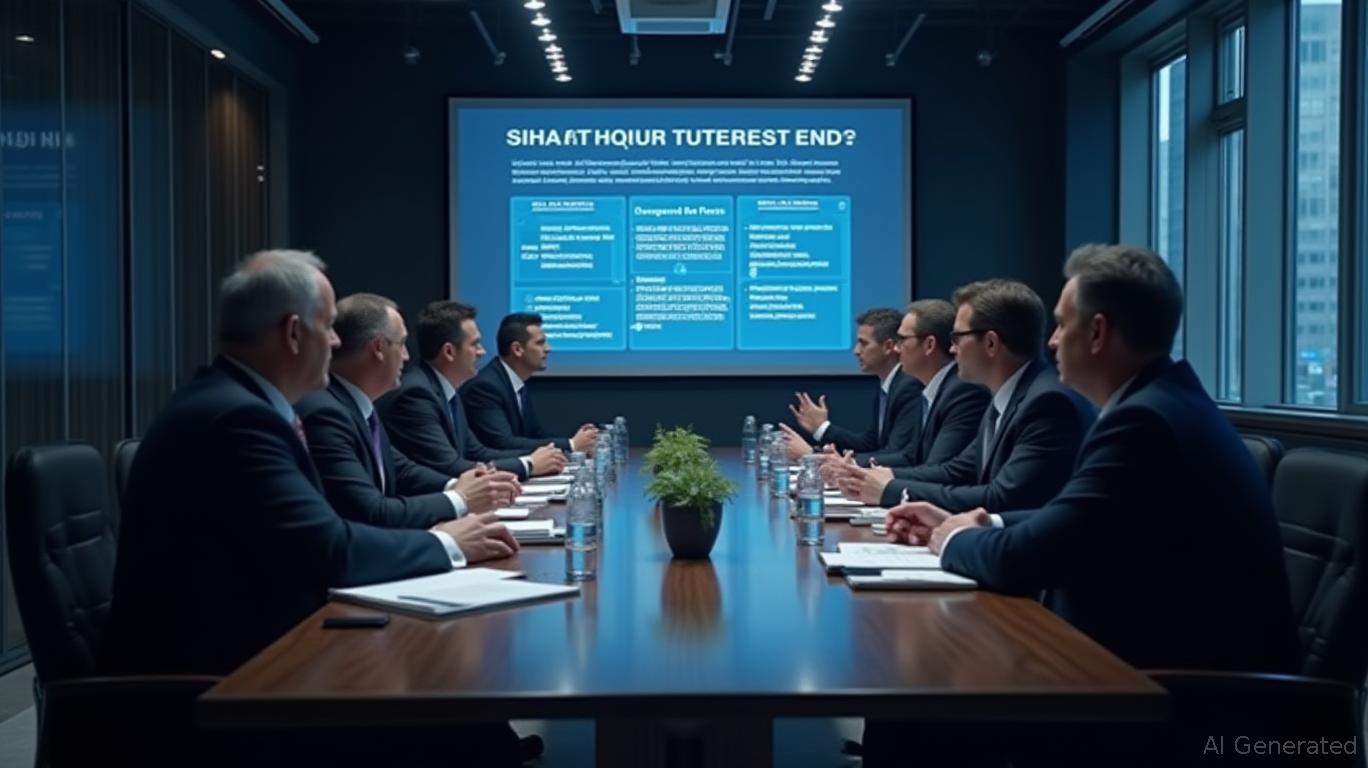Ethereum Updates: Buterin's Support Drives Ethereum's Advancement Toward Instant Worldwide Finance
- Ethereum co-founder Vitalik Buterin endorsed ZKsync's Atlas upgrade, boosting ZK token prices by 50% and highlighting its role in enhancing Ethereum's scalability. - The upgrade offers 15,000–30,000 TPS, one-second finality, and unified liquidity between Ethereum's L1 and L2, addressing multi-chain fragmentation and enabling real-time cross-chain settlements. - Institutional adoption grows as ZKsync's Airbender proof system and governance token (ZK) attract firms like Deutsche Bank, with 33% of tokens al
Vitalik Buterin, one of Ethereum’s co-founders, has recently voiced strong support for ZKsync’s Atlas upgrade, sparking notable movement in the blockchain sector.
Atlas, created by Matter Labs, represents a major leap forward for Ethereum’s Layer-2 technology. The upgrade brings throughput of 15,000–30,000 transactions per second (TPS), near-instant finality, and minimal fees, depending on the implementation, as detailed in
Buterin’s endorsement goes beyond technical achievements. He has long championed zero-knowledge (ZK) rollups as the preferred path for Ethereum’s scaling, and Atlas fits his vision of a “real-time liquidity hub” that can accommodate institutional and real-world asset (RWA) flows, as Coinotag has previously reported. The upgrade’s Airbender proof system and high-speed sequencer further boost performance, positioning ZKsync as a strong foundation for enterprise adoption. Major financial institutions like Deutsche Bank and UBS are already investigating ZKsync for asset tokenization and compliance-focused applications, according to
The ZK governance token is set to be central in decentralizing ZKsync, with airdrops aimed at loyal users and 33% of the total supply reserved for the Matter Labs team and investors, as noted by CryptoFront. Buterin’s public support has boosted market optimism, but there are still hurdles to overcome. Some critics point out that while Ethereum’s mainnet is highly secure, Layer-2 solutions like ZKsync must continue to demonstrate their security through audits and real-world use, as discussed in
Looking forward, the Atlas upgrade could enable
Disclaimer: The content of this article solely reflects the author's opinion and does not represent the platform in any capacity. This article is not intended to serve as a reference for making investment decisions.
You may also like
Mortgage Rates Remain Tied to Bond Market, Not Federal Reserve Decisions
- U.S. mortgage rates fell to 6.4% in late October 2025 after Fed's 50-basis-point rate cuts in September and October. - Experts predict stable rates tied to bond markets, not Fed actions, as Treasury yields near multi-year lows. - Market priced in two more Fed cuts by year-end, but Powell's cautious stance caused temporary rate spikes post-October meeting. - Historical data shows Fed cuts often fail to lower mortgage rates due to bond yields and inflation expectations dominance. - Analysts warn of potenti

Advisory Connection or Hands-on Involvement? CZ Faces Scrutiny Over Kyrgyzstan Crypto Bank
- CZ Zhao denied proposing Kyrgyzstan's Bereket Bank, clarifying his role as an advisor, not operator, per Coinotag. - President Japarov credited CZ for inspiring the bank's creation, though CZ emphasized no direct involvement in its establishment. - Kyrgyzstan's crypto initiatives include a som-pegged stablecoin and Binance partnerships, aligning with its digital asset hub ambitions. - The dispute highlights challenges in distinguishing advisory roles from operational ties in international crypto collabor

XRP News Today: Major Institutions Embrace Blockchain, Transforming Assets into Tokens for Clearer Investment Opportunities.
- Franklin Templeton joins tokenized fund trend, leveraging blockchain to enhance institutional access to alternative assets. - JPMorgan and Securitize-BNY Mellon partnerships demonstrate tokenization streamlining private equity and structured credit markets. - XRP ETF regulatory clarity and RLUSD's $900M growth highlight maturing digital finance infrastructure with cross-border appeal. - 2025 poised as crypto integration milestone year, driven by institutional adoption, stablecoin adoption, and regulatory

Fortress Ruble: Russia Closes Crypto Access to Bolster Digital Independence
- Russia's central bank bans domestic crypto payments, prioritizing its digital ruble CBDC launch by 2026 to reinforce financial sovereignty. - Stablecoins are allowed for international trade but prohibited domestically, balancing innovation with central bank control over monetary policy. - The policy aims to prevent crypto-driven financial instability, restrict domestic crypto use to speculation, and align with China's state-controlled CBDC model. - Critics argue the ban stifles innovation, while proponen
